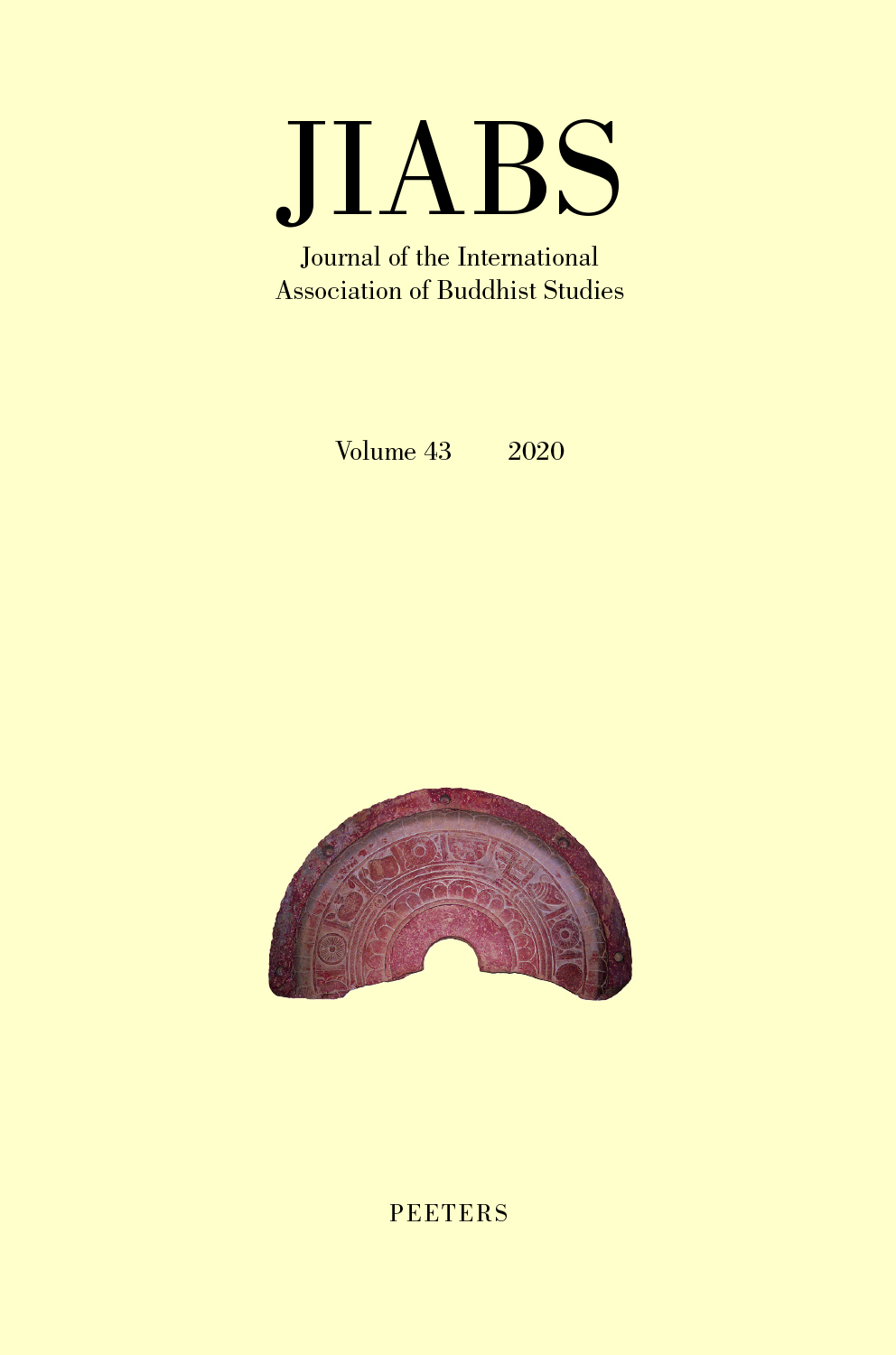 previous article in this issue previous article in this issue | next article in this issue  |

Preview first page |
Document Details : Title: Using Concepts to Eliminate Conceptualization Subtitle: Kamalaśīla on Non-Conceptual Gnosis (nirvikalpajñāna) Author(s): KELLNER, Birgit Journal: Journal of the International Association of Buddhist Studies Volume: 43 Date: 2020 Pages: 39-80 DOI: 10.2143/JIABS.43.0.3289052 Abstract : The view that conceptualization (vikalpa) distorts reality and is to be eliminated is found in several Mahāyāna traditions. Many authors, traditional and modern, have dealt with the profound implications that this principle has for how awakened beings conduct salvific activities. Aiming to work towards a fuller picture of Buddhist views on rationality, meditative experience and liberation, this paper complements this line of enquiry by discussing one particular Buddhist thinker’s philosophical account of how a practitioner enters the state of non-conceptuality – or non-conceptual gnosis – in the first place: that of the eighth-century monastic scholar and philosopher Kamalaśīla (740-795). A synthetic reading across Kamalaśīla’s three Bhāvanākrama-treatises is offered that also considers discussions in this author’s more technical philosophical works. What emerges as a peculiar feature of Kamalaśīla’s account of non-conceptual gnosis is his eminently rationalistic conception of how conceptuality is to be eliminated: through processes of philosophical reasoning and investigation that continue even in states of meditative concentration, as is especially evident in Kamalaśīla’s account of reflective meditation or vipaśyanā. This account challenges the view – also recently ascribed to Kamalaśīla – that for Buddhists meditation provides experiential corroboration for sacred truths. It also cautions against approaching Buddhist accounts of vikalpa with contemporary philosophical notions of 'conceptuality' without paying attention to the soterial function of vikalpa. Fatal error: Uncaught mysqli_sql_exception: Column 'lib_id' cannot be null in /srv/data/web/vhosts/poj.peeters-leuven.be/htdocs/secure/POJ/tracker2.php:212 Stack trace: #0 /srv/data/web/vhosts/poj.peeters-leuven.be/htdocs/secure/POJ/tracker2.php(212): mysqli_query() #1 /srv/data/web/vhosts/poj.peeters-leuven.be/htdocs/article.php(579): track2_page_hit() #2 /srv/data/web/vhosts/poj.peeters-leuven.be/htdocs/content.php(634): include('...') #3 {main} thrown in /srv/data/web/vhosts/poj.peeters-leuven.be/htdocs/secure/POJ/tracker2.php on line 212 |
